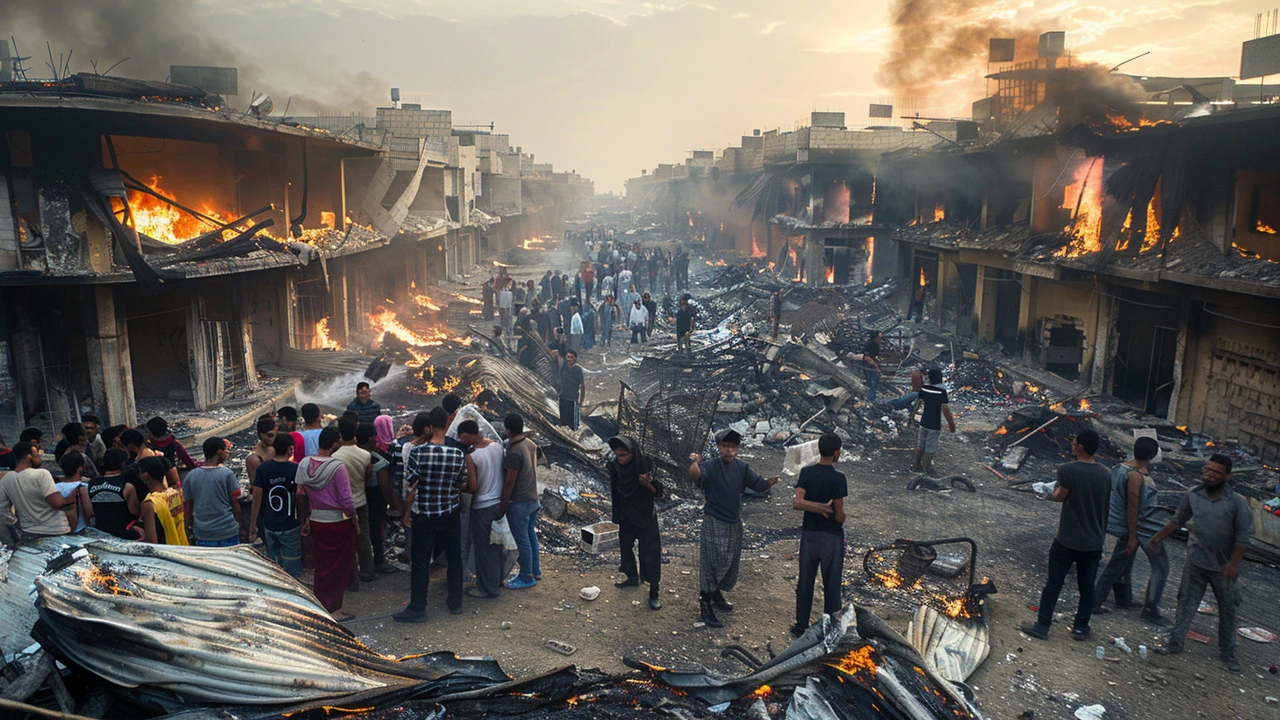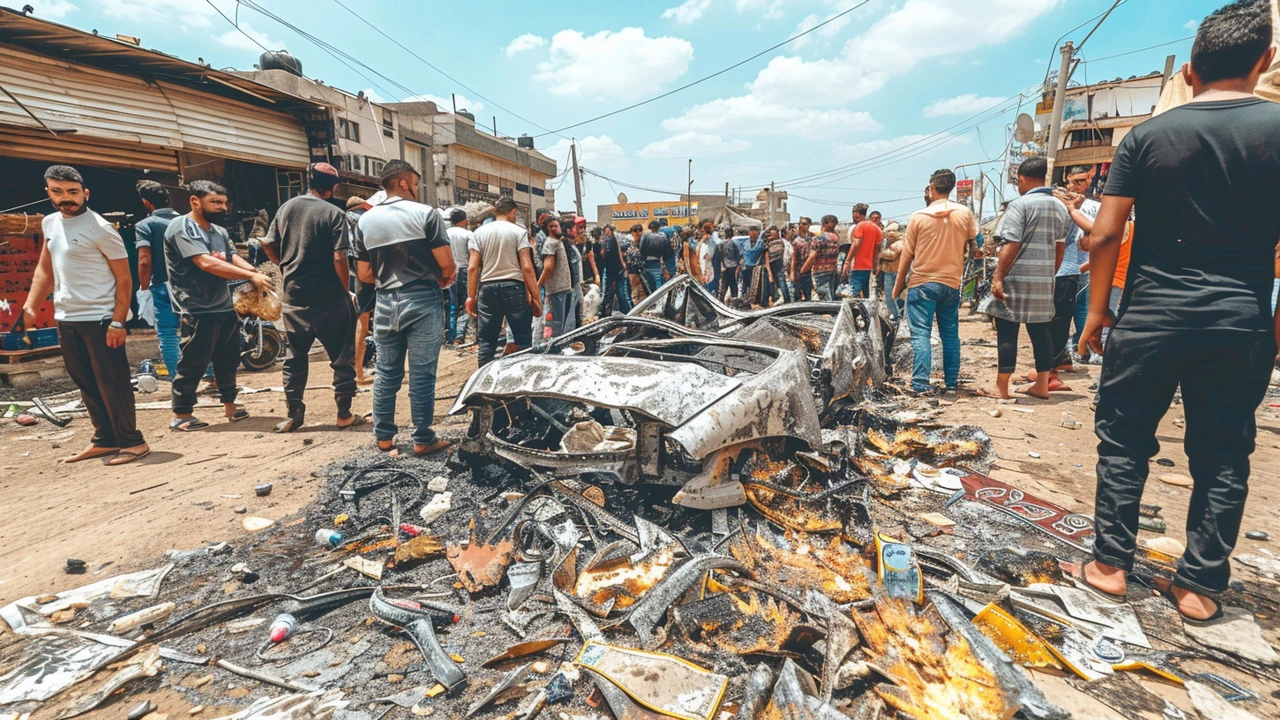
Rafah Tragedy: UN Head Calls Gaza City 'Hell on Earth' Amid Israeli 'Tragic Mistake'
The southern Gaza city of Rafah has recently come into the limelight for all the wrong reasons, following a devastating airstrike. On a somber Sunday, an Israeli airstrike hit a tent camp in the Tel al Sultan neighborhood, a residential refuge from an ongoing ground offensive in the eastern part of Rafah. This airstrike tragically resulted in the loss of at least 45 lives, including women, children, and the elderly, while injuring several others as per the Hamas-administered health ministry's reports.
Philippe Lazzarini, head of the United Nations Relief and Works Agency for Palestinian refugees (UNRWA), did not mince words when describing the harrowing scene that played out in Rafah. 'Hell on Earth,' he termed it, emphasizing the severity of these tragic events. His heartfelt observation underscores the catastrophic consequences of the attack that has reverberated far beyond the confines of this embattled region.
Israeli Prime Minister Benjamin Netanyahu expressed his regret over the incident, labeling it a 'tragic mistake.' Despite this acknowledgement, the ramifications of the strike were deeply felt among the civilian population. The Tel al Sultan neighborhood, which bore the brunt of the airstrike, was a hub for thousands who had fled their homes looking for safety. Tragically, many were caught off guard as they were preparing to settle in for the night, only to face an unforeseen barrage.
A Humanitarian Crisis
This tragic event spotlights what has now become a humanitarian crisis of mounting proportions. Eyewitness accounts from survivors paint a grim picture. Families were ripped apart and utterly devastated amid the chaos. Civilians, including a disturbingly high number of women and children, suffered severe burns and other injuries. The shortage of medical facilities has intensified the crisis, with the local Red Cross field hospital in Rafah struggling to handle the influx of injured Palestinians.
Numerous civilians have ended up missing, some feared to have succumbed to the severe burns inflicted by the airstrike. This brutal incident has left an indelible mark on the already hard-hit refugee population in Gaza. UNRWA reported the unfortunate scenario of some of their personnel being unaccounted for, further exacerbating the distress among the already stretched humanitarian workforce.
International Legal Complications
The gravity of the situation extends beyond the immediate conflict, encapsulating complex international legal concerns. The International Court of Justice (ICJ) had previously ruled that Israel should cease its military actions. However, despite this directive, Israel continued its operations, citing allowances in the ruling for particular military activities. Statements from the Israel Defense Forces claim that the airstrike targeted 'legitimate targets' using 'precise munitions' and based on 'precise intelligence,' although this incident is now 'under review.'
Adding to the tragedy, another Israeli airstrike hit a residential house in Rafah on the following Monday, resulting in further casualties, including seven fatalities and several injuries. This notably compounds the fear and uncertainty pervading the region, deepening the collective trauma experienced by its inhabitants.

Global Reactions
The international community has not remained silent in the wake of these events. The United States has called for Israel to take greater precautions in protecting civilians, a sentiment echoed by various global leaders. French President Emmanuel Macron expressed his outrage, highlighting the profound impact on the affected civilian populations. German Foreign Minister Annalena Baerbock and European Union foreign policy chief Josep Borrell emphasized the importance of respecting the ICJ ruling.
As the global eye remains trained on Rafah, the plight of its people underscores the urgent need for a resolution to the enduring conflict. The vast humanitarian implications, paired with the mounting civilian toll, paint an unmistakable picture of urgency and despair. The recent events in Rafah serve as a poignant reminder of the fragile line between military objectives and civilian safety, amplifying calls for peace and justice in a region long ravaged by conflict.
Write a comment